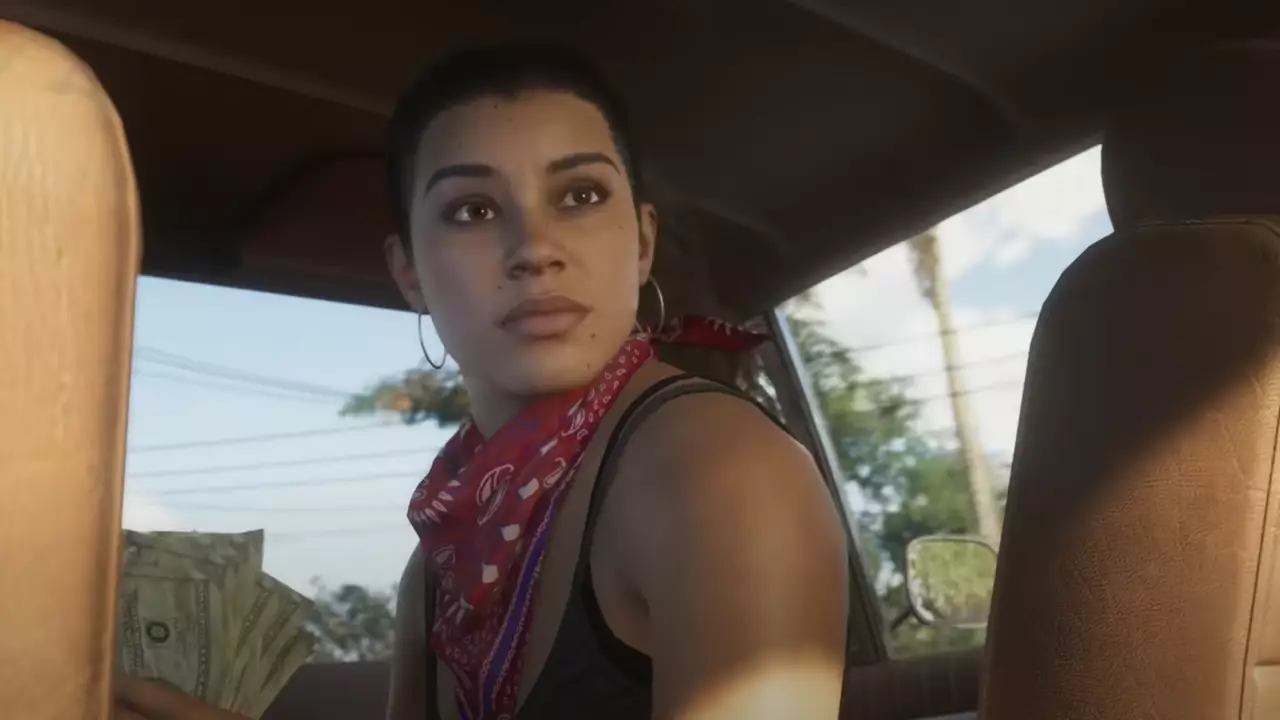The excitement surrounding the release of Rockstar’s Grand Theft Auto VI (GTA VI) is palpable. Set to launch in the Fall of 2025, the game is already generating significant buzz within the gaming community and among industry analysts. Expectations surrounding its performance are sky-high, with predictions suggesting that it could amass over $1 billion in preorders and achieve 40 million sales within its first year. In the midst of a market struggling with declining console sales, the anticipation of GTA VI emerges as a potential bright spot, poised to reshape the landscape of video game consumption.
2024 has been a challenging year for console hardware sales. With major brands like PlayStation and Xbox experiencing substantial declines, the market was ripe for rejuvenation. Strauss Zelnick, the CEO of Take-Two Interactive (Rockstar’s parent company), recently expressed optimism regarding the potential impact of GTA VI on console sales. He noted that historically, significant gaming titles have played a crucial role in driving hardware sales. This sentiment resonates deeply in a market that has recorded a notable decrease in unit sales across all consoles, including the Nintendo Switch, which is anticipated to face its most challenging year yet.
The landscape also reflects mixed news regarding hardware development. Nintendo plans to unveil the Switch 2, while both Sony and Xbox are reportedly developing their next-generation consoles. As these new systems launch, the industry’s ability to leverage critically acclaimed titles like GTA VI will be pivotal in guiding consumer investments in console hardware.
The Broader Gaming Ecosystem: PC and Console Distinctions
While console gaming has seen a downturn, Zelnick’s attention toward the PC gaming segment suggests an emerging trend that could redefine game distribution strategies in 2025. He pointed out a growing share of the gaming market that reflects an evolving preference for PC gaming. This is indicative of a broader shift in consumer habits, where players are diversifying their gaming experiences away from traditional consoles.
Despite this trend, Take-Two’s decision to withhold the simultaneous launch of GTA VI on PC raises questions about platform strategy. Unlike other publishers that opt for cross-platform releases, Take-Two appears to be carefully navigating the ecosystem, perhaps holding back on PC availability to maximize console sales during the critical launch window.
Economic Factors: Tariffs and Their Implications
In tandem with market trends, external economic factors also loom large over console sales. Zelnick expressed concerns regarding proposed tariffs on goods imported from Mexico and Canada. These tariffs could hinder console affordability, further disincentivizing potential buyers during a time when new console launches could otherwise encourage sales. His belief that free trade should be the cornerstone of a thriving economy reflects a broader concern within the industry regarding how government policies can directly impact sales and market viability.
Despite the challenges presented by a declining console market and potential tariffs, there remains a strong sense of anticipation for the future. The upcoming game slate from Take-Two, which includes not only GTA VI but also titles like WWE 2K25, Mafia: The Old Country, and Borderlands 4, suggests a packed release calendar that could energize the gaming community. Analysts and industry insiders are hopeful that this strategic release schedule will not only enhance consumer interest but also stimulate console sales in the long term.
As we approach 2025, industry leaders will be closely observing shifting consumer behaviors, technological advancements, and economic policies that could influence the gaming landscape. In this climate of uncertainty, the release of GTA VI stands out as both a risk and an opportunity—a prospect that could potentially revitalize console sales and reestablish the overall growth trajectory of the gaming industry in a post-pandemic world.


Leave a Reply